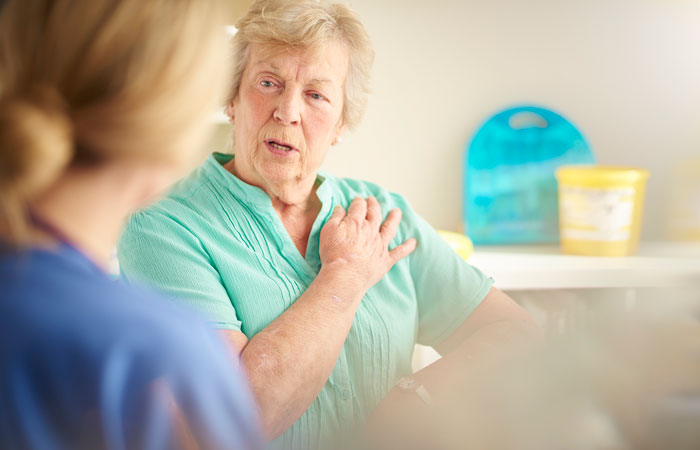Check out this video for physicians, to help address opioid use disorder when patients present to your emergency department.
Opioid Use Disorder and Medication-Assisted Treatment (MAT) Resources
Find more resources on opioid use and Medication-Assisted Treatment


The goal of HSHS St. Nicholas Hospital in Sheboygan, Wisconsin is to help arm medical professionals, public health departments, law enforcement and others with accurate information about opioid use disorder (OUD) and the value of medication-assisted treatment (MAT) in the reduction of opioid overdoses. We hope you find the following resources helpful.
For Physicians
For Nurses
Check out this video for nurses, to help address opioid use disorder when patients present to your emergency department.
Tips for Managing Complex Patient Behavior in the Emergency Department
Check out this video for nurses, to help understand and manage behaviors when patients with opioid use disorder present to your emergency department.
Buprenorphine Treatment for Patients in Sheboygan
If you have a patient who is ready to start their journey toward recovery, HSHS St. Nicholas Hospital in Sheboygan, Wisconsin has a buprenorphine induction to recovery service that is available at no cost to patients without insurance. You can send patients to HSHS St. Nicholas Hospital and they can walk into our emergency department anytime for care. No referral is necessary.
Recovery from addiction is possible and you can help! For flyers or posters to help educate patients and the public about this treatment option, contact us.
Medication-Assisted Treatment (MAT)
To learn more about medication-assisted treatment and how it works, SAMHSA has this evidence-based resource guide for medication assisted treatment, or check out our FAQ page.
Reducing overdoses
Overdoses have doubled since 2015 in Sheboygan County. Learn to recognize the signs of an overdose, understand what to do if someone is overdosing from opioids and how Narcan® can help.
Signs of an opioid overdose
- Unconsciousness or inability to awaken.
- Non-responsiveness to pain.
- Slow or shallow breathing or breathing difficulty such as choking or snorting sound.
- Lips and fingernails turning blue.
- Cool and clammy skin.
- Tiny pupils.
- Slow heart rate.
What to do if someone is overdosing
- Call 911.
- Try to rouse them. Call their name. Shake their shoulders. Don’t slap.
- If they don’t respond, vigorously rub their sternum with your knuckles.
- If they’re not breathing, give a couple of rescue breaths.
- Administer Narcan®.
HSHS St. Nicholas Hospital has a brochure with more information about how to prevent opioid overdoses, along with information about Narcan® and Sheboygan area resources. Contact us today for brochures.
Reducing the opioid stigma
Stigma exists in many facets of life. Learning about the stigma around substance use disorders and being aware of potential biases can help break down barriers that patients are facing when it comes to seeking help.
The words we use, for instance, can contribute to the stigma around opioid use. Words alone can create barriers for those who are struggling with opioid use disorder, and who would benefit from accessing effective treatment.
One of the most important things to remember when talking to someone with an opioid use disorder, is to use person-first language – in doing so, we focus on the person, not the disorder. In addition, by choosing words carefully, you can change the conversation to show you understand someone “has” a problem, rather than making them feel like they “are” the problem.
When discussing opioids or other substance use disorders, consider the following:
| Instead of: | Use: |
|---|---|
| Addict, user, drug abuse, junkie | Person with opioid use disorder or person with opioid addiction |
| Opioid abuse or opioid dependence | Opioid Use Disorder |
| Problem | Disease |
| Habit | Drug Addiction |
| Clean or dirty urine test | Negative or positive urine drug test |
| Opioid substitution or replacement therapy | Opioid agonist treatment |
| Relapse | Return to us |
| Treatment failure | Treatment attempt |
| Being clean | Being in remission or recovery |
| Adapted from NIDA Words Matter: Terms to Use and Avoid When Talking About Addiction | |
